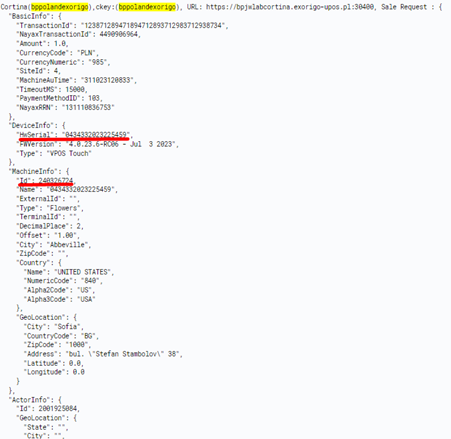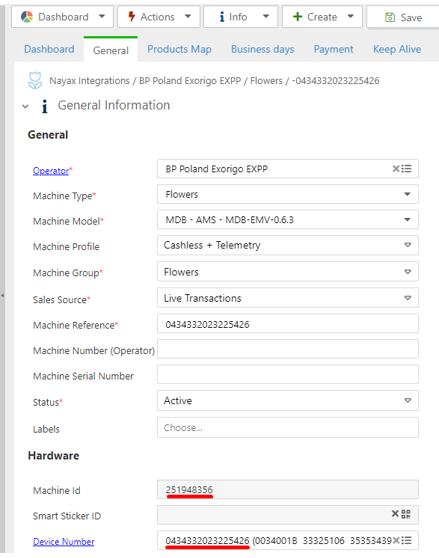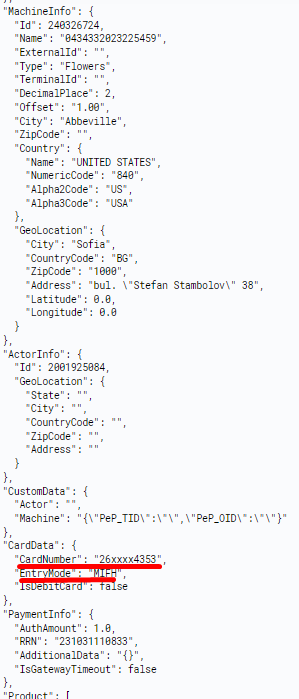FAQ
What are the endpoints for each of the commands?
Each method would have its own endpoint, based on the URL provided to Nayax. StartSession and SaleEndNotification being of the format of: (customer's URL)/Cortina/StartSession (customer's URL)/Cortina/SaleEndNotification
Whereas the rest of the commands would be of the following format (include the integration type): (customer's URL)/Cortina/PrePaid/Authorization (customer's URL)/Cortina/PrePaid/Settlement (customer's URL)/Cortina/PrePaid/Cancel
(customer's URL)/Cortina/PrePaid/Sale (customer's URL)/Cortina/PrePaid/Void
How can we track a transaction on our end/ are there any rules to the Transaction ID?
Your transaction identifier on your end is the Transaction ID field. You can send us whichever Transaction ID you desire, as long as it's made up of 36 numeric characters (you'd encrypt that Transaction ID in the StartSession response), as mentioned in the Start Session authentication process.
Should you like to know which transaction ID on Nayax's end matches your Transaciton ID- you can see that in the "Sale" request (in red- your own Transaction ID, in blue- Nayax's Transcation ID):

How do I identify from which of my machine the transaction is coming from?
That would be the information inside the "Sale" request, under the "MachineInfo"- you'd have the "Id" field which would provide you with your virtual machine's ID (you can add a colum to your table which would include correlation between the machineID and the pysical location of the device). Should you like to, you can also match a physical location by the device's serial number which is also send within the "DeviceInfo", but I think it would be best to do the matching by the "MachineInfo"'s "Id" filed as it is possible that at some point you'd decide to swap devices for a certain machine, but it's not as likely that you'd change the virtual machine itself (as those are usually linked to the physical location of the machine):


Where do I get the consumer's card details?
That would be inside the "Sale" request's "CardData":

Are all of the calls directed to the same TCP port?
Yes
How can we direct the calls to a certain port?
For example, if a customer would like calls to be directed to port 1234 and their URL is XXX.com, we'd have the following URL set up for the payment method: XXX.com:1234
Updated about 5 hours ago